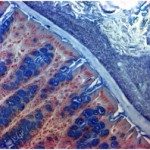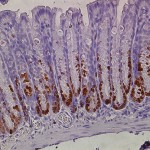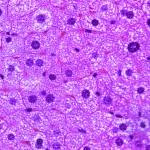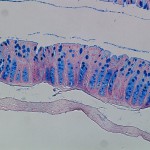 MICROBIOME/ HOST INTERACTIONS
MICROBIOME/ HOST INTERACTIONS
In recent years, deserving attention has been drawn to the human microbiome, the set of microbes and their genes that reside within and upon us. Probiotics, antibiotics, fecal transplants and c-sections have all received public attention due their capacity to alter short and long term health status via changes in the microbiome. Our research aims to identify the key players that benefit health and the microbes associated with dysbiosis and disease, to enable medicinal treatment of digestive health. … READ MORE
 COMPLEX IMMUNE DISORDERS
COMPLEX IMMUNE DISORDERS
Human health is largely a function of metabolism, the network of chemical transformations that derive life-sustaining energy, and the immune system, the set of innate and adaptive systems that function to protect an organism against disease… READ MORE
 HOST PATHOPHYSIOLOGY
HOST PATHOPHYSIOLOGY
Our lab’s research in Host Pathophysiology spans the study of circadian rhythms and intestinal motility and their effects on dysbiosis. Some of the tools that we use to study Host Pathophysiology are organoid cultures and genetically engineered mouse models… READ MORE
 STRESS AND HEAT SHOCK PROTEINS
STRESS AND HEAT SHOCK PROTEINS
Heat shock proteins (HSPs) are a highly conserved family of multifunctional molecules. They play a role in mucosal cytoprotection, host-microbe interactions, innate immunity, cancer initiation and development, and in autophagy. Although many types are constitutively expressed, some, such as HSP70, HSP25 and HMGB1 are rapidly induced and preferentially synthesized under conditions of cellular stress and injury. Their physiological expression in the gut is maintained by cues and signals provided by the enteric microbiota. In epithelial cells, their induction protects against toxic, oxidant, and thermal injury… READ MORE
 BIOINFORMATICS
BIOINFORMATICS
We employ a multitude of AI (artificial intelligence) and advanced statistical methods to identify patterns in microbial and host-derived data important in driving and predicting phenotypes. This includes integration of diverse microbe and host data-types including metabolomics, genomics, transcriptomics, clinical metadata, metabolic/physiological metrics, and immune functions.
 CANCER BIOLOGY
CANCER BIOLOGY
The average person has a 1/20 chance of contracting colon cancer in their lifetime, but the determinants and risk factors are largely unknown. The Chang lab is investigating what genetic factors between host and microbe contribute to colon cancer in search of preventative measures such as dietary or other lifestyle changes… READ MORE

